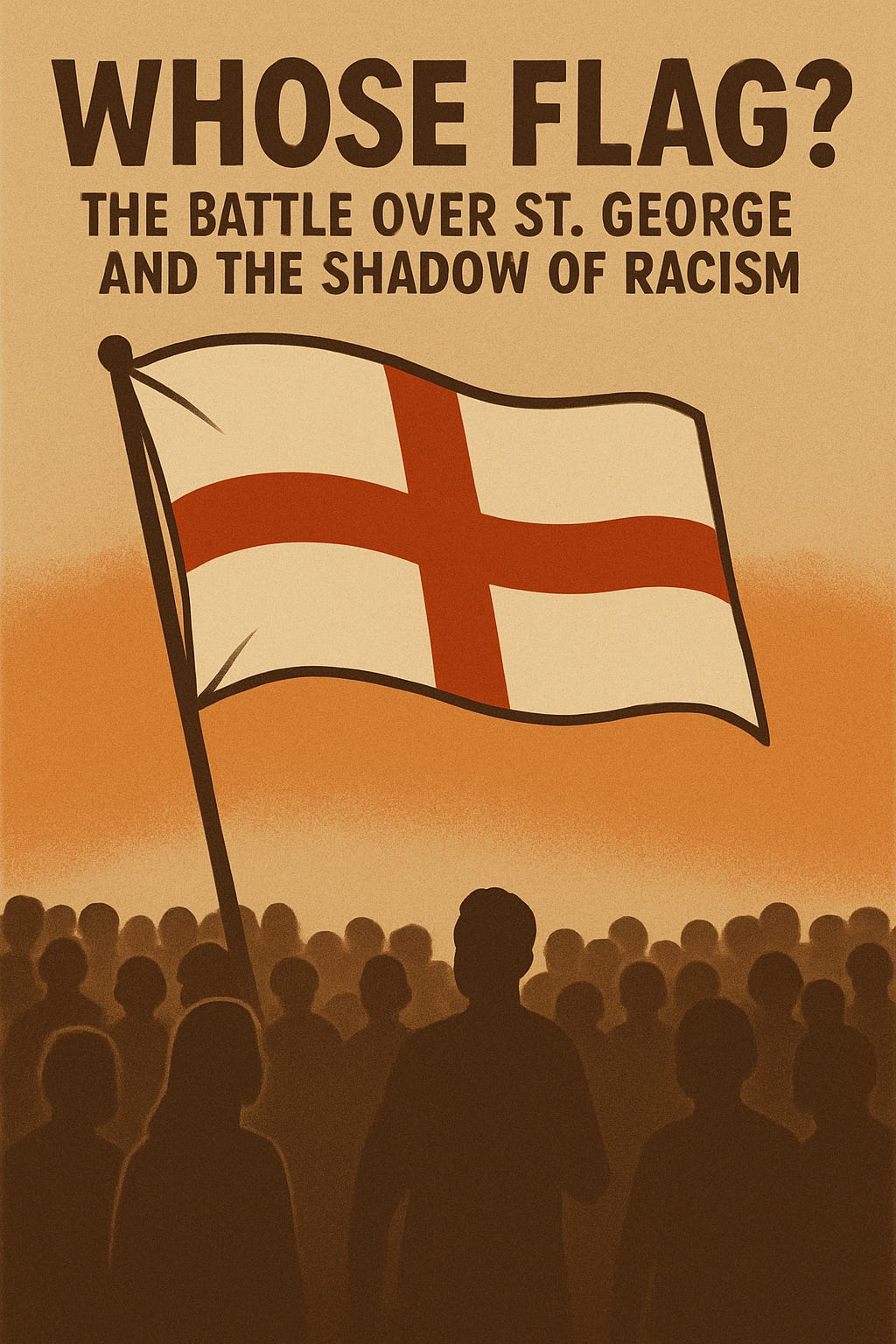Whose Flag? The Battle Over St. George and the Shadow of Racism
Do we want our national flag to be a racist symbol? Or can we reclaim it?
The red cross of St. George should be a simple thing: a national emblem, a shared symbol of belonging. Yet in England, the flag has become a battlefield. For many, it is pride in football, in history, in home. But for others, it has become something darker: years of association with racism, xenophobia, and the politics of exclusion. The struggle over the English flag is about identity. It’s about who gets to define Englishness itself.
When Did The Flag Become Controversial?
Unlike Scotland’s saltire or Wales’s dragon, the English flag has long been entangled with politics of division. During the late 20th century, far-right groups like the National Front and later the English Defence League adopted it as their banner. Marches filled with St. George’s crosses were too often also filled with chants against immigrants and Muslims. Over time, the flag was tainted—seen less as a unifier, more as a weapon of division.
The Football Effect
The most visible reclamation of the flag has come through football and other national sports. For many, flying the flag is about the national sports teams, not as a threat. The men’s 2018 World Cup run and 2024 Euros final, and the Lionesses wins at the 2022 and 2025 Euros have shown glimpses of a softer patriotism, one rooted in sport and camaraderie. Yet even here, the shadow lingers. Despite the achievements of both teams, racism was directed to male and female players. Stadium racism, hooliganism, and the weaponisation of national pride remind us how fragile that reclamation is.
Racism and the Politics of Ownership
The deeper problem is not the flag itself but the politics around it. Englishness has too often been defined in opposition—to migrants, to Muslims, to Europe. For far-right groups, St. George is a shorthand for a “real” England: white, Christian, and closed. This is why so many people hesitate before flying it. The flag becomes less about inclusion and more about exclusion—about drawing boundaries between “us” and “them”.
Can the Flag Be Reclaimed?
There are those who argue for reappropriation. Just as Pride reclaimed the rainbow and the suffragettes reclaimed the colours of protest, why shouldn’t England reclaim St. George? A flag does not have to belong to the racists. But reclamation requires action. It means challenging racism wherever the flag is waved alongside it. It means creating a positive, pluralistic vision of Englishness—one where an immigrant in Manchester or Birmingham feels just as entitled to fly St. George as anyone else.
Conclusion: More Than a Banner
The controversy over the English flag is not trivial. It is a reflection of our politics. So long as Englishness is wielded as a weapon against others, the flag will remain stained. But if English identity can be defined as open, diverse, and proud without being hostile, then perhaps the red cross might one day simply stand for home. Until then, the battle for St. George is also the battle for the soul of England.


